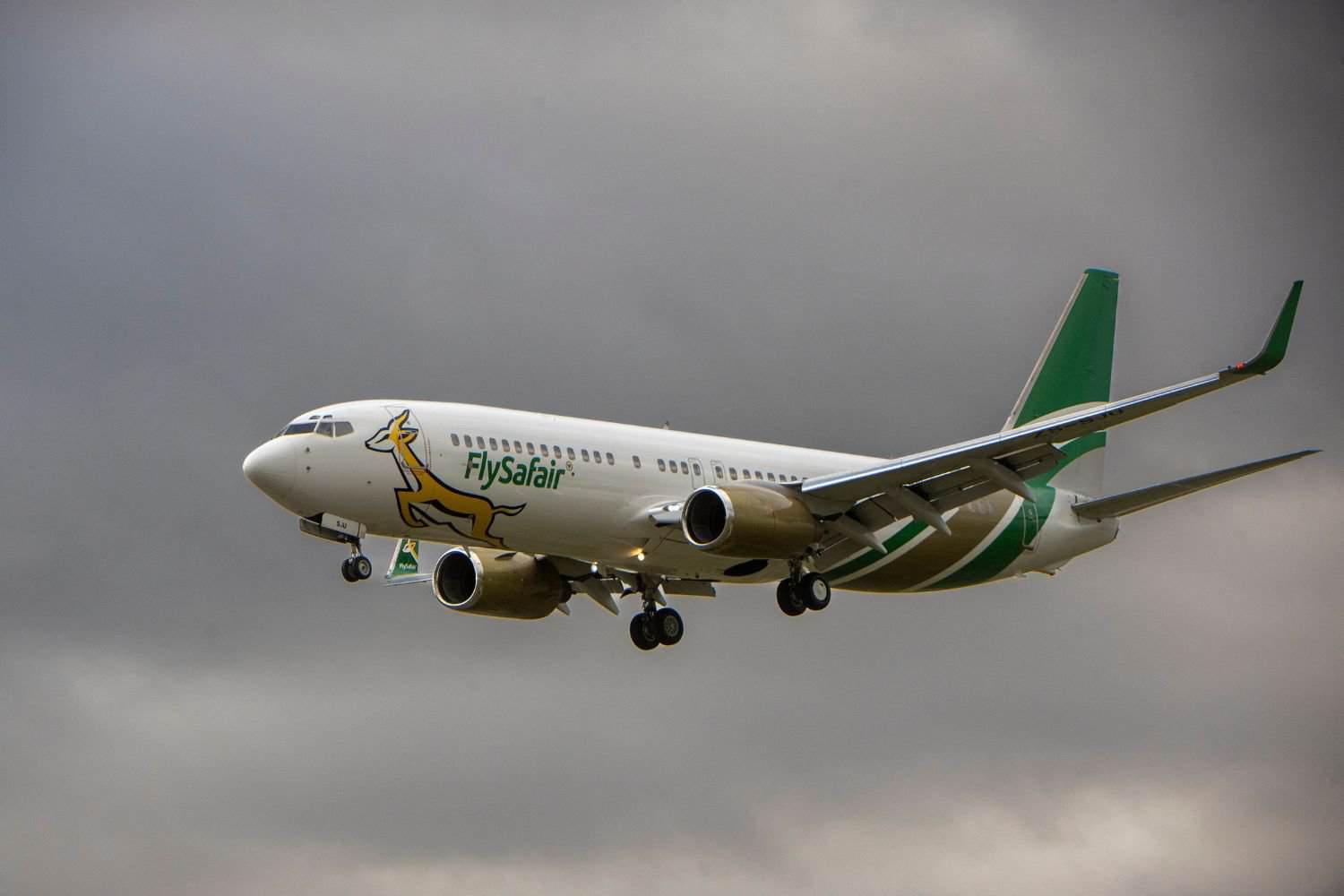A four-year deal was signed between Flysafair and the unionised pilots.

The 12-day strike by FlySafair pilots has officially ended after a settlement agreement was reached, though concerns remain over a potential mass exodus of pilots.
FlySafair confirmed on Friday that its management had signed a formal agreement with the trade union Solidarity through the Commission for Conciliation, Mediation and Arbitration (CCMA).
The pilots initiated the strike on 21 July, demanding salary adjustments and changes to their roster system, including flexible leave days.
The strike disrupted flight schedules and impacted thousands of customers.
ALSO READ: Here’s how much FlySafair pilots are earning as increase offer rejected
FlySafair had initially offered a 5.7% wage increase, claiming that the pilots already earned between R1.8 million and R2.3 million annually.
However, the unionised pilots rejected the offer, first demanding a 10.5% increase before lowering it to 7%.
As part of the agreement, pilots will now receive salary increases of 6%, 6.5%, 6.8% and 6.9% over the next four years.
Flysafair pilots strike ends
FlySafair’s chief marketing officer, Kirby Gordon, expressed satisfaction with the “constructive resolution” reached, which will help the airline resume full-capacity operations.
“The return of our full schedule will help bring much-needed capacity back to the market, which is essential to restoring fare equilibrium and making travel more affordable again for South Africans.
“The agreement marks the conclusion of a challenging but ultimately productive negotiation process,” Gordon said in a statement on Friday.
READ MORE: FlySafair accuses rivals of safety violations amid investigations into its own near-crash incident
The airline said that with all planes back in service and schedules back to normal, airfares should stabilise “in the coming weeks” as more seats become available.
Solidarity spokesperson Helgard Cronjé bemoaned that the mediation process came at a high cost and could have been resolved earlier.
He also claimed that the new shift roster system will now be governed by fixed rules instead of “soft rules”, which previously allowed management to make arbitrary adjustments.
Solidarity believes Flysafair strike could have been avoided
Moreover, Solidarity secretary-general Gideon du Plessis criticised the airline, saying the pilots were forced to strike for what they rightfully deserved.
“It’s really bittersweet because you know, the things that we’ve settled on after 12 days of strike is what we’ve been asking for since February this year.
“It’s just gobsmacked that the pilots had to go out on a 12 day strike to get just what they asked for,” he told SABC in an interview on Friday.
Du Plessis detailed the new work-life balance provisions for pilots, explaining that the emloyees will now receive at least one 60-hour weekend off every six weeks.
“They will also have 10 guaranteed days off per month because remember they work any of the seven days of the week.
READ MORE: Rostering issue at heart of pilot strike, says Solidarity
“They can also swap the day with another pilot. Say for instance, there’s a family commitment, they may be able to swap with another pilot, but also if they have to go and work on a legal off day, then they can get that off day back the following month.
“It’s so ridiculous that they had to strike to get this. The company must have lost hundreds of millions of rands, while the pilots have lost 12 days of remuneration to get what we asked for.”
Due to the “no work, no pay” principle, the affected pilots will receive a one-off payment equal to 15% of their monthly salary.
They may also cash in five leave days to help ease the financial impact.
“It’s a bittersweet deal, but in the end it was like a silent or a non-violent revolt of the pilots because the company said they didn’t want to listen to them,” Du Plessis said.
Pilots mass exodus?
He also warned of possible long-term consequences to the airline’s workforce.
“They are very angry, they are very disappointed in the company, were bullied, they were intimidated during the strike so what we expect is a mass exodus of pilots.”
Du Plessis pointed out that major international carriers like Emirates are hiring, presenting potential opportunities for disillusioned FlySafair pilots.
“The company has got a serious problem because they’re going to lose many pilots who are just purely disappointed and disgruntled,” he said.
“It’s just very concerning what will happen next but at least we’ve managed to solve the big issue and to bring the strike and the lockout to an end.
“The pilots can return to work on Sunday but there’s a serious relationship building that needs to happen immediately,” Du Plessis said.
NOW READ: FlySafair under fire for offshore payouts amid staff wage freezes
Support Local Journalism
Add The Citizen as a Preferred Source on Google and follow us on Google News to see more of our trusted reporting in Google News and Top Stories.








